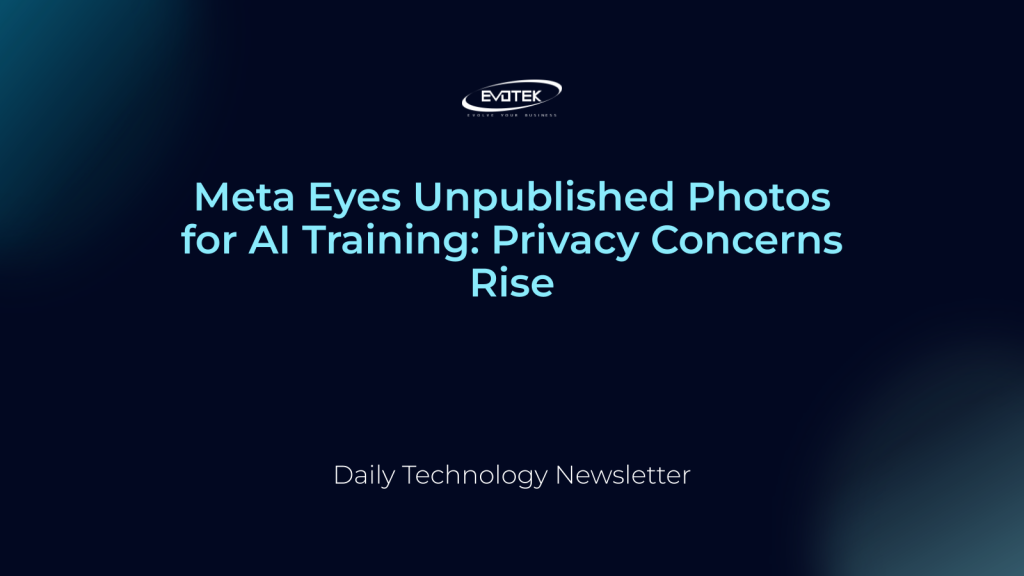A new feature being tested on Facebook is raising eyebrows and sparking privacy concerns. Meta is exploring the possibility of using unpublished photos from users’ camera rolls to enhance its AI capabilities. While Meta claims it’s not currently training its AI models with these photos, their vague stance on future use has left many users uneasy.
“Cloud Processing” Sparks Debate
TechCrunch recently reported that some Facebook users encountered a pop-up message while using the Story feature. This message asks users to opt-in to “cloud processing,” which would allow Facebook to regularly access and upload media from their camera roll. The stated goal is to generate “ideas like collages, recaps, AI restyling or themes like birthdays or graduations.”
However, agreeing to this feature also means agreeing to Meta AI terms. These terms allow Meta’s AI to analyze the “media and facial features” of unpublished photos, along with metadata like dates and the presence of people or objects. Crucially, users grant Meta the right to “retain and use” this personal information.
Meta’s Ambiguous Stance on Data Usage
While Meta representatives have stated that this feature is currently only for generating content suggestions and not for AI training, they have been unwilling to explicitly rule out the possibility of using unpublished photos for AI training in the future. This ambiguity, coupled with Meta’s past data practices, has fueled skepticism.
Unlike Google, which explicitly states that it does not use personal data from Google Photos to train its generative AI models, Meta’s current AI usage terms lack similar clarity. This leaves users wondering whether unpublished photos accessed through “cloud processing” are exempt from being used as training data.
A New Frontier in Data Privacy?
This feature represents a potential shift in how Meta accesses and uses user data. It bypasses the conscious decision to post a photo publicly, instead tapping into the vast trove of unpublished images stored on users’ devices.
Fortunately, Facebook users can disable camera roll cloud processing in their settings. Activating this feature will also remove unpublished photos from the cloud after 30 days.
The key takeaway: Always carefully review the terms and conditions before opting into new features, especially when they involve access to your personal data.
Concerns Echo Previous AI Training Practices
This news comes on the heels of Meta acknowledging that it scraped data from all content published on Facebook and Instagram since 2007 to train its generative AI models. While the company claimed to have only used public posts uploaded by adult users over the age of 18, the definition of “public” and “adult user” in 2007 remains vague.
This latest development suggests that Meta is continuing to explore new avenues for sourcing data to train its AI models, raising important questions about user privacy and data ownership.
Further Reading:
- Meta’s AI Copyright Win Comes With a Warning About Fair Use
- WhatsApp Rolls Out AI-Generated Summaries for Private Messages

 日本語
日本語 한국어
한국어 Tiếng Việt
Tiếng Việt 简体中文
简体中文